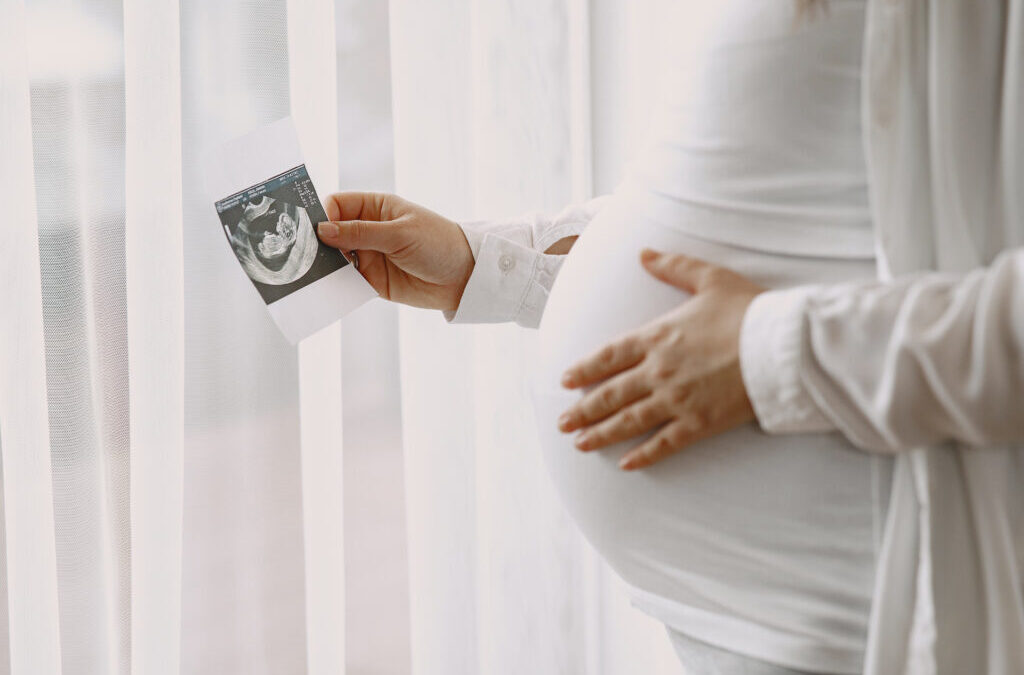As women progress through their 30s and 40s, they often face crucial decisions regarding their reproductive future. At 40, many women may be concerned about their eggs’ quality and viability. However, advancements in reproductive technology, such as egg freezing, provide a solution.
The concept of egg freezing has emerged as a powerful tool for preserving fertility and giving women greater control over their reproductive choices. For women considering egg freezing at 40, it becomes crucial to consult a skilled IVF specialist who understands their unique needs and can guide them through the process effectively.

Nisha IVF Centre in Ahmedabad, led by Dr. Nisarg Patel, is a trusted and renowned destination for fertility treatments and assisted reproductive technologies. Dr. Nisarg Patel is an esteemed IVF specialist in Ahmedabad. His expertise in reproductive medicine, combined with the cutting-edge facilities at Nisha IVF Centre, offers women a comprehensive approach to egg freezing at 40. Dr. Patel and his team assist patients on their journey towards fertility preservation, ensuring the best possible outcomes.
In this blog, we will learn more about egg freezing, its benefits, success rates, and the impact of freezing your eggs at 40.
The Basics of Egg Freezing
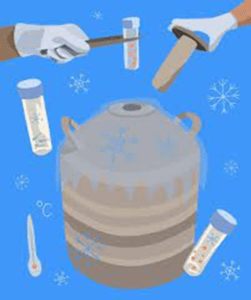
It offers a way to preserve a woman’s fertility and reproductive potential, allowing her to delay pregnancy until she is ready or faces life circumstances that may affect her ability to conceive naturally.
Are my eggs still good at 40?
The quality and viability of eggs can vary from woman to woman, and age is a significant factor that affects fertility. At 40, it is natural for some women to experience a decline in egg quality and quantity. However, it is essential to remember that every individual is unique. Some women at 40 may still have good-quality eggs, while others may have a reduced fertility potential.
Consulting with an experienced fertility specialist, such as Dr. Nisarg Patel at Nisha IVF Centre in Ahmedabad, can provide personalized insights into your specific situation.
Through comprehensive fertility assessments, including ovarian reserve testing and other diagnostic evaluations, Dr Patel can assess the current status of your eggs and recommend the best course of action for your circumstances.
Are frozen eggs good for IVF?
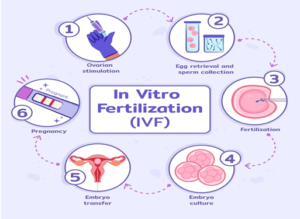
When using frozen eggs for IVF, the doctor thaws them and fertilizes them with sperm in the laboratory. Then, they transfer the resulting embryos to the woman’s uterus for potential implantation and pregnancy.
How successful is egg freezing at 40?
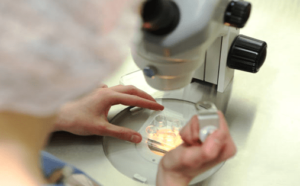
It is important to note that the success of egg preservation and subsequent IVF depends on several factors, including the quality and quantity of eggs, facilities at the fertility clinic and laboratory, and the overall health of the individual undergoing the freezing eggs procedure.
Success rates can also be influenced by factors such as the use of donor sperm, the presence of any underlying fertility issues, and the number of embryos transferred during IVF.
Working closely with an experienced IVF specialist, such as Dr. Nisarg Patel, can significantly enhance your chances of success. Dr. Patel can assess your situation and provide personalized guidance. He can tailor a treatment plan to optimize the success of using frozen eggs for achieving a healthy pregnancy.
Benefits of Egg Freezing at 40
1. Preserving Fertility:
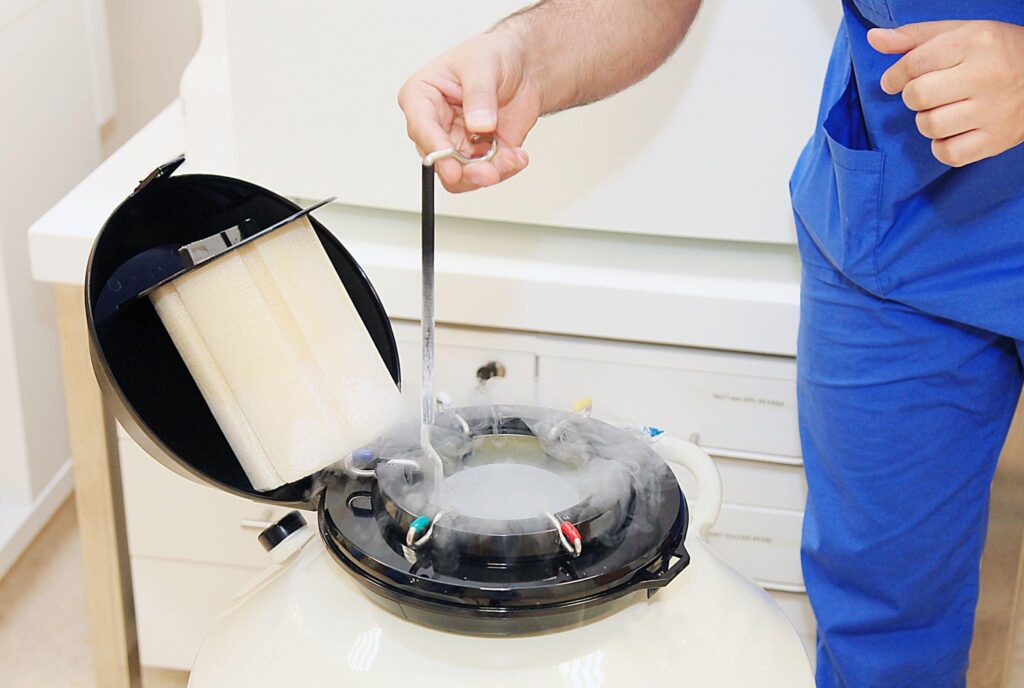
As women age, the quality and quantity of their eggs decline, making it more difficult to conceive naturally. By opting for egg preservation at 40, women can preserve the healthier and more viable eggs they have at that age. This helps increase the chances of a successful pregnancy later on.
2. Personal and Professional Priorities:
Women today often juggle various personal and professional commitments, and starting a family may not be feasible during their 40s. Egg freezing offers an opportunity to prioritize other aspects of life while keeping the option of having biological children open for the future.
3. Medical Conditions and Treatments:
Some medical conditions or treatments, such as cancer or certain surgeries, may adversely affect fertility. By freezing egg at 40, women can protect their chances of becoming biological mothers after recovery or completion of treatments.
Impact of Egg Freezing
While egg freezing offers several benefits, it is essential to consider its potential impacts:
1. No guarantee of success:
Embryo freezing does not guarantee a successful pregnancy in the future. The chances of success depend on various factors, including the quality and quantity of frozen eggs and the overall reproductive health of the individual. It is important to note that frozen eggs fertility potential can vary & not all eggs may result in viable embryos during the fertilization process.
2. Costly procedure:
Freezing embryos at 40 costs can be expensive, including the expenses associated with medications, the egg retrieval procedure, and storage fees. Future IVF treatments may also require frozen eggs, adding to the overall costs.
3. Emotional and psychological impact:
The egg-freezing process can be emotionally and psychologically challenging. It may involve stress, anxiety, and decision-making regarding future family planning. It is essential to be prepared for the emotional aspects involved.
4. Physical discomfort and risks:
The egg retrieval procedure involves hormonal stimulation and a minor surgical procedure. It may lead to temporary discomfort, bloating, and a slight risk of complications.
5. Limited time frame:
Egg freezing is most effective at a younger age. The quality and quantity of eggs decline with age. So, the success rates may decrease if the procedure is delayed.
It is crucial to consult with a qualified fertility specialist to understand the potential risks and benefits of egg freezing and make an informed decision based on your circumstances and goals.
What percentage of eggs are normal at 40?
According to a study by Imperial College London, women who freeze their eggs at 40 are less likely to use them successfully in the future. The study suggests that only a small percentage of eggs retrieved from women in their 40s are likely normal. It highlights the importance of considering egg freezing at an earlier age.
For more detailed information, you can refer to the study conducted by Imperial College London, available at this link: Women Freeze Their Eggs At 40 Unlikely To Use Them.
Can I increase my eggs after 40?
While the number of eggs naturally declines with age, no proven methods exist to increase the number after 40. However, certain lifestyle modifications and fertility treatments such as IVF or egg donation may enhance the chances of conception.
Dr. Nisarg Patel can provide guidance on potential options to optimize your fertility at 40 and explore the best course of action based on your specific circumstances.
Takeaway
Egg freezing at 40 is a viable option for women seeking to preserve fertility. With advancements in technology and the guidance of an experienced IVF specialist like Dr. Nisarg Patel, women can have peace of mind and greater control over their reproductive choices.
Frequently Asked Questions
Q.1 How many eggs are abnormal at 40?
A: As women age, the percentage of abnormal eggs tends to increase. At 40, it is estimated that a significant number of eggs retrieved may be abnormal. This highlights the importance of considering egg freezing at an earlier age.
Q.2 How long do frozen eggs last?
A: When properly frozen and stored, eggs can remain viable for an extended period. Currently, there is no absolute limit to how long frozen eggs can last. With advanced cryopreservation techniques, frozen eggs can potentially be stored for many years without significant loss in quality.
Q.3 Is egg freezing a painful process?
A: The freezing eggs procedure typically involves hormonal injections and an egg retrieval process. Some women may experience discomfort and bloating during the stimulation phase. However, the doctor performs egg retrieval under sedation, minimizing pain or discomfort.
Q.4 How can I increase my fertility at 40?
A: While fertility declines with age, there are steps you can take to optimize your fertility at 40. Adopting a healthy lifestyle encompassing regular exercise, a well-balanced diet, and effective stress management can positively influence fertility.
Q.5 Does freezing eggs stop periods?
A: No, freezing eggs does not stop menstrual periods. Egg freezing is a process that involves preserving unfertilized eggs for future use. Menstrual cycles and ovulation continue as usual. It is important to note that egg freezing does not directly affect the regularity or timing of menstrual periods.

